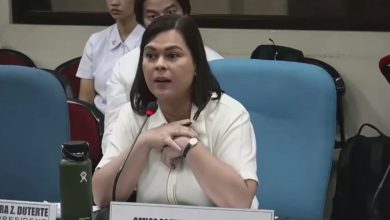Are you heavily in debt? Keep calm and pull yourself together. In this edition, we report what experts say is a good option for your way out consolidation. But remember: only you can make it work.
More and more Filipinos overseas are looking for ways to manage their multiple debts and get out of what have become their daily nightmares.
Here in the UAE, access to debt is relatively easy compared to more stringent policies back home. It is only when an overseas Filipino could no longer sleep due to piling debts that he begins to ponder, and ask: Pa’no nga ba nagsimula ang lahat, bes? (How did it all start?)
It usually does when an overseas Filipino starts to make enough income – averaging Dh5,000 – that would qualify him for credit cards. Those having salary below the benchmark, as numerous reports have shown, are lured by lending houses offering easy cash with more relaxed requirements.
The Filipino Times spoke with debt defaulters to find out how it all started. We also interviewed debt management companies to understand ways on how to get out of this never-ending cycle.
From “kelangan ko” to “gusto ko ‘nyan”
Jose Ma. Guerrero (not his real name), got promoted with a gross monthly pay of Dh6,000. His bank told him he is now eligible for a credit card with a limit of Dh12,000. He did not really need a card but he was convinced to take it, anyway. Jose used it occasionally, which became more frequent as he started to extend the classification of “kailangan ko ‘to” (needs) to “gusto ko ‘to” (wants) from groceries to gadgets, clothes and more remittance (padala).
In three months, Juan used his card to pay Dh12,000 worth of expenses. He only pays the minimum amount due (Dh600) which is only 5% of the total balance. Upon payment of the minimum due, he bought a new pair of sunglasses worth Dh600 thinking that it’s still within his limit.
On the fourth month, he was surprised to see that he has received a bill of Dh12,700 requiring a minimum pay of Dh1,325 (Dh200 for over-limit fee, Dh500 for interest and Dh700 for the actual exceeded amount).
On the fifth month, he used his food budget to pay-off the unforeseen additional credit card payment. So he used the card to pay Dh400 for groceries. At the end of the month, he is once again surprised because his minimum due has increased to Dh1,700.
Before he knew it, his minimum due has now reached Dh4,500 on top of his Dh12,000 original debt. He no longer has enough funds to pay rents, family remittance and daily cost of living. He has then started to default on payments which further incurred interests, over-limit fees and late payment charges. The bank is now aggressively following up on his payments, threatening him of impending police case and legal action.
‘Pasan ko ang daigdig’
Mary Diaz (also not her real name) is a single mom who has a fifth-grader daughter at a Montessori school and a son in 3rd year college. She earns Dh8,000. She’s in the same boat as Juan. Only this time, she thought of getting another credit card where she can cash out to make a partial payment to her first credit card which has an outstanding balance of Dh20,000 (excluding interest). She cashed out Dh16,000 (80% of the card value). She paid Dh10,000 to the first card and remitted Dh6,000 for her children’s tuition fees. For the cash-out, she had to pay Dh480 for the processing fee plus a monthly interest of Dh240, on top of the overall finance charges.
At the end of the first month, she has to pay a minimum of Dh1,430 for the second card; and Dh2,500 for the first one.
Half of her salary is now earmarked to pay for her two credit cards. A day came when her son had to go to Singapore for internship and asked for a new laptop. Mary had to cash out Dh10,000 from the first credit card and ended up having both cards maxed out. More than half of her salaries now go to card payments and she started to default.
A.k.a. Gone Girl
Nancy Roxas is hiding from authorities because of unpaid two credit cards and a personal loan of Dh215,000. She now absents herself from work to avoid debt collectors and is also borrowing from everyone she knows using emotional and fabricated stories.
If only they knew…there’s debt consolidation pala!

“Debt consolidation is basically converting multiple payments into a single one,” said Dhiraj Bhatia, managing director, Express Debt Management Consultancy (EDMC).
The idea, he explained, is to covert the high interest rate liabilities into a lower interest rate payment. “This will reduce the monthly payments and get you out of debts completely over a period of time,” Bhatia said

Yvonne Gonzales of Gulf Law Consultancy walked us through: “First step is to evaluate your existing financial condition,” she said.
She stressed: “It is important to consider how much lower the interest rate is and whether or not it is a fixed rate for the entire term.”
The financing company will assess the client’s paying capacity.
“Upon consolidation of the loan, you can free up a little bit of extra income, and clear up credit card balances,” Gonzales said. (See case study box on the next page)
While on loan consolidation, it is advised that you don’t spend money at the same rate that you do previous to the payment plan. Consolidation is a good option as long as you stop using your credit cards and change your habits so you do not continue to run up debt.
Remember: This is your last straw. You can’t default again. And only you can make it work.
CASE STUDY: Pinay had Dh23,000 monthly credit payments and made it
Lydia Cabenti (not her real name) makes Dh28,000 a month. Because she receives a high salary, she made the mistake of spending more than what she makes. She ended up buried in loans and credit card debt.
Her liabilities and payouts were as follows:
• Salary transfer loan with HSBC – Dh6,100 per month. Total Outstanding Dh200,000
• Non Salary Transfer Loans with FGB- Dh3,400 per month. Total Outstanding DH130,000
• HSBC credit card debt – Dh35,000
• Other Bank Cards- Total Outstanding: Dh140,000 (Loan also availed on all of these cards)
• Total monthly payout – DH23,000 (against all of the above listed liabilities)
Cabenti sought help from a debt consolidator which gave her a loan on a preferential rate and unified all her liabilities into a single payment.
Her monthly payout now is Dh11,700 and she will be completely debt free in the next four years. Her monthly disposable income now is Dh16,300 which is up Dh11,300 from the Dh5,000 left from her after payments before she sought help. (Instant Debt Management Services)



